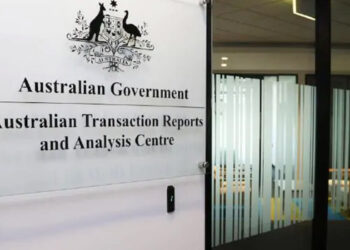The federal budget had little focus on superannuation, with only a few mentions of the sector – one being that superannuation tax receipts played a key role in the $9.4 billion upward revision in tax revenue.
The others included the endorsement of support for payday super reform, set to begin on 1 July 2026, and a commitment of $50 million over three years to allow the Australian Taxation Office to ensure timely payment of superannuation liabilities by Australian businesses.
And while it wasn’t specifically mentioned in the budget, the government indicated it remains staunchly committed to the $3 million super tax, having already factored its forecast $2.3 billion first-year revenue into the forward estimates.
Government revenue projections show that the superannuation sector will contribute $25.6 billion to the federal budget in 2025-26, marking a $9.7 billion increase from the Mid-Year Economic and Fiscal Outlook (MYEFO), mostly on the back of taxes.
The budget papers read: “The upgrade to superannuation fund taxes reflects higher-than-expected current year collections, higher contributions due to the strength in employment and an increase in tax from earnings on investments.”
In its post-budget statement, the Association of Superannuation Funds of Australia (ASFA) applauded the inclusion of the additional funding for the tax authority, saying it would ensure retirement savers get the superannuation they are owed. The body also welcomed “meaningful cost-of-living relief for retirees” and “keeping some welcome stability in settings for the superannuation sector”.
But, while welcoming the stability this budget keeps in the super system, CEO Mary Delahunty said: “Changes in policy settings will always be needed.”
Such changes include adjustments to the Low Income Superannuation Tax Offset (LISTO), which ASFA advocated in its pre-budget submission.
“While we were disappointed not to see this change in the budget, but look forward to working with the incoming government to make sure this vitally important equity measure is delivered,” Delahunty said.
The Financial Services Council (FSC) also welcomed the funding allocated to the Tax Integrity Program. However, its overall message was that the next Parliament has a “significant opportunity” to prioritise economic growth and regulatory simplification.
One key area the FSC highlighted was the need to commit to the rationalisation of legacy superannuation products.
“The FSC has recommended policy proposals that would increase financial services exports by almost $2 billion a year and lift the sector’s productivity by $800 million a year through a combination of reducing regulatory costs, lowering fees and investing in new markets,” FSC CEO Blake Briggs said.
In its reaction to Labor’s pre-election budget, the Super Members Council (SMC) criticised the government for not going far enough with its superannuation reforms, particularly highlighting the failure to address the outdated law that denies most teen workers up to $10,000 from their retirement savings.
“Australians strongly support universal super – and know it’s a workplace right. Super should be for everyone, paid from the first hour of your first job. Fixing this outdated exclusion is long overdue,” CEO Misha Schubert said.
“As every smart investor knows, it’s the dollars you invest earliest that work hardest to grow your compound returns. Every Australian worker, at every age, deserves the right to set themselves on the path to a dignified retirement.
“Super is Australia’s economic stabiliser – the investment of the savings of millions of everyday Australians powers Australian business and creates new jobs. Securing the system’s fundamentals and making super even stronger and fairer is key to Australian prosperity.”
HESTA had several notes on where the budget fell short, including no super on the carer payment, no adjustments to LISTO, and no indexation of work bonus payments thresholds.
“While our super system is one of the world’s best, gaps remain that disadvantage those earning lower wages and women,” CEO Debby Blakey said.
“Around 80 per cent of HESTA’s 1 million plus members are women – and these proposed changes could make a significant impact to their retirement outcomes.
“Dignity in retirement should be for everyone, and we will continue advocating for change to support our members’ capacity to retire on their terms.”







